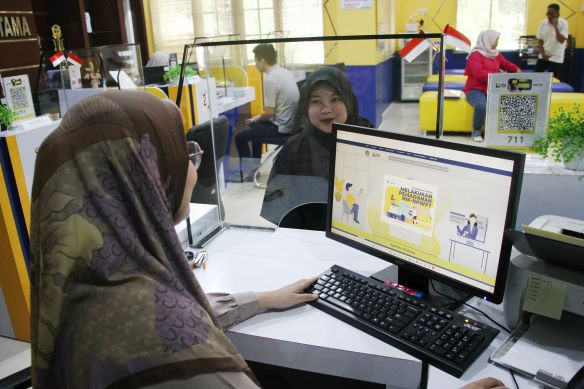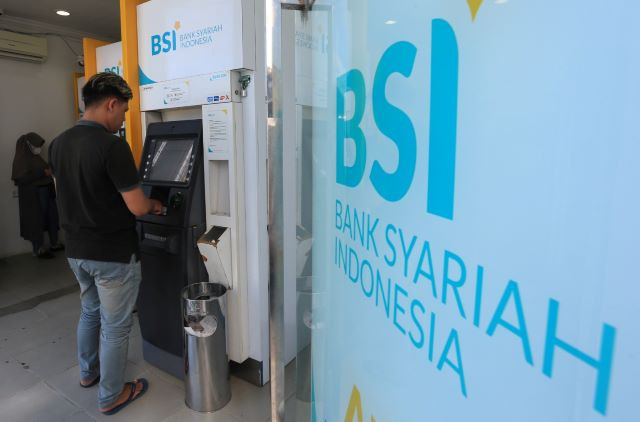Bali to host international arbitration conference
The Asia-Pacific Regional Arbitration Group (APRAG) will hold its 2016 conference in Bali’s Nusa Dua from Oct. 6 to 8. Hosted by the Indonesian National Board of Arbitration (BANI), this will be the first time the APRAG conference is held in Indonesia. APRAG is a regional federation of arbitration associations that aims to improve standards and knowledge on international arbitration and will make submissions on behalf of the region to national and international organizations.
Change Size
 Arbitration is a process by which parties refer their disputes to an impartial third person, an arbitrator, selected by them for a decision based on the evidence and arguments to be presented before the arbitration tribunal or through a process other than a court of competent jurisdiction. (Shutterstock/-)
Arbitration is a process by which parties refer their disputes to an impartial third person, an arbitrator, selected by them for a decision based on the evidence and arguments to be presented before the arbitration tribunal or through a process other than a court of competent jurisdiction. (Shutterstock/-)
T
he Asia-Pacific Regional Arbitration Group (APRAG) will hold its 2016 conference in Bali’s Nusa Dua from Oct. 6 to 8. Hosted by the Indonesian National Board of Arbitration (BANI), this will be the first time the APRAG conference is held in Indonesia. APRAG is a regional federation of arbitration associations that aims to improve standards and knowledge on international arbitration and will make submissions on behalf of the region to national and international organizations.
Currently it has 41 member organizations that provide services for dispute resolution through arbitration. BANI was established in 1977 and is the only APRAG member representing Indonesia.
Taking the theme of “The Rise of International Arbitration and Development of Investment Treaty Arbitration: The Asian Response”, the 2016 conference is set to discuss the following issues: diversity and unification of arbitration practices in Asia, third-party funding, investment costs and commercial arbitration, investment arbitration in Asia, as well as prospects for harmonization of commercial and investment arbitration within the ASEAN Economic Community.
Arbitration is a process by which parties refer their disputes to an impartial third person, an arbitrator, selected by them for a decision based on the evidence and arguments to be presented before the arbitration tribunal or through a process other than a court of competent jurisdiction.
In other words, it is a consensual means of dispute resolution by non-governmental decision-makers and produces a definitive and binding award that is capable of enforcement through national courts.
The well-known reasons for the popularity of commercial arbitration is that it is predictable, held in private to avoid publicity and that it is more flexible, less formal, cheaper and speedier than national court proceedings.
However, the phenomenal increase in arbitration can also be attributed to the rapid expansion of trade and the fact that free market policies are increasingly influenced by non-state actors.
In international trade, new arrangements formed outside of nation states, such as multilateral economic institutions, supranational legal standards and non-governmental entities led by capital market actors and multilateral corporations have been significant in promoting arbitration as a means of settling commercial disputes of international character, bypassing the tests and standards required by national judicial systems.
The arbitration agreement is recognized as long as the object of arbitration is for the parties of arbitration to decide, in other words, the dispute cannot center on issues of public interest (for example, disputes falling under family law).
In commercial matters, the agreement to arbitrate can be concluded either after the dispute has arisen or before, and form part of the original contract.
The parties can specify the law that should regulate the dispute, or leave that decision to the arbitrator.
Once the arbitrator has rendered the award, if the loser does not comply voluntarily, the winning party can have the award declared enforceable by the courts. The courts will limit themselves to purely formal control, verifying that an agreement to arbitrate exists, that the appointment of the arbitrator has been made according to such agreement and that the award satisfies the formal requirements established by national law.
Arbitration in Indonesia dates back to long before World War II, but it has rarely been used due to a lack of understanding on its benefit and procedures. Until August 1999, arbitration in Indonesia was governed by the Burgelijke Reglement of de Rechtsvordering (known as “RV”), coupled with the provisions on freedom of contract in Indonesia’s Civil Code.
Law No. 30 of 1999, which went into effect on Aug. 12, 1999, covers arbitration and alternate dispute resolution. Unlike neighboring countries Malaysia and Singapore, Indonesia maintains a single regime for international and national arbitration; also, the law does not reflect the UNCITRAL Model Law.
Under the Arbitration Law, district courts have no jurisdiction on the settlement of disputes if the parties are bound by a written arbitration agreement. A district court may not review the reasoning in the award, but may only execute it if both the nature of the dispute and the agreement to arbitrate meet the requirement set out in the Arbitration Law, namely that the dispute is commercial in nature and within the authority of the parties to settle; and the arbitration clause must be contained in a signed agreement.
The parties may submit a request for annulment of the arbitral award only if the award involves withholding of decisive documentation, forgery or fraud.
Arbitral awards are categorized into two types: for national arbitration and for international arbitration. The law requires that national arbitration awards be registered with the court clerk in the district where the losing party is domiciled or maintains assets with 30 days of rendering.
Failure to register renders the award unenforceable. The enforcement procedure allows the appropriate district court to issue an order of execution directly if the losing party does not, after being duly summoned and so requested by the court, satisfy the award.
The Arbitration Law permits both ad hoc and institutional arbitration. Institutional arbitration may be conducted through either an overseas arbitration institution or national institution, such BANI, which was established in 1977 by three prominent lawyers, namely Soebekti, Haryono Tjitrosoebono and Priyatna Abdurrasyid, on the initiative of two business leaders, Suwoto Sukendar and Julius Tahija.
With initial support from the Indonesian Chamber of Commerce and Industry (Kadin), BANI is now an independent institution managed and overseen by a governing body and an advisory board made up of distinguished individuals from the public and private sectors.
The present governing board includes Hussyen Umar as chairman, Haryanto Sunija, Huala Adolf and Krisnawenda as secretary-general. It is based in Jakarta with offices in major cities, including Surabaya, Bandung, Pontianak, Denpasar, Medan and Batam.
In addition to BANI, there are several other arbitration institutions, such as BASYARNAS (for businesses based on Islamic law) and BADAPSKI (for construction businesses).
Earlier this year, the Financial Services Authority (OJK) established six arbitration institutions for resolving disputes through mediation or arbitration in the sectors of insurance (BMAI), capital markets (BAPMI) pension funds (BMDP), banking (LAPSPI), security (BAMPDI) and finance (BMPPI).
***
The writer is a director of an energy consulting company in Jakarta.
---------------
We are looking for information, opinions, and in-depth analysis from experts or scholars in a variety of fields. We choose articles based on facts or opinions about general news, as well as quality analysis and commentary about Indonesia or international events. Send your piece to community@jakpost.com.









